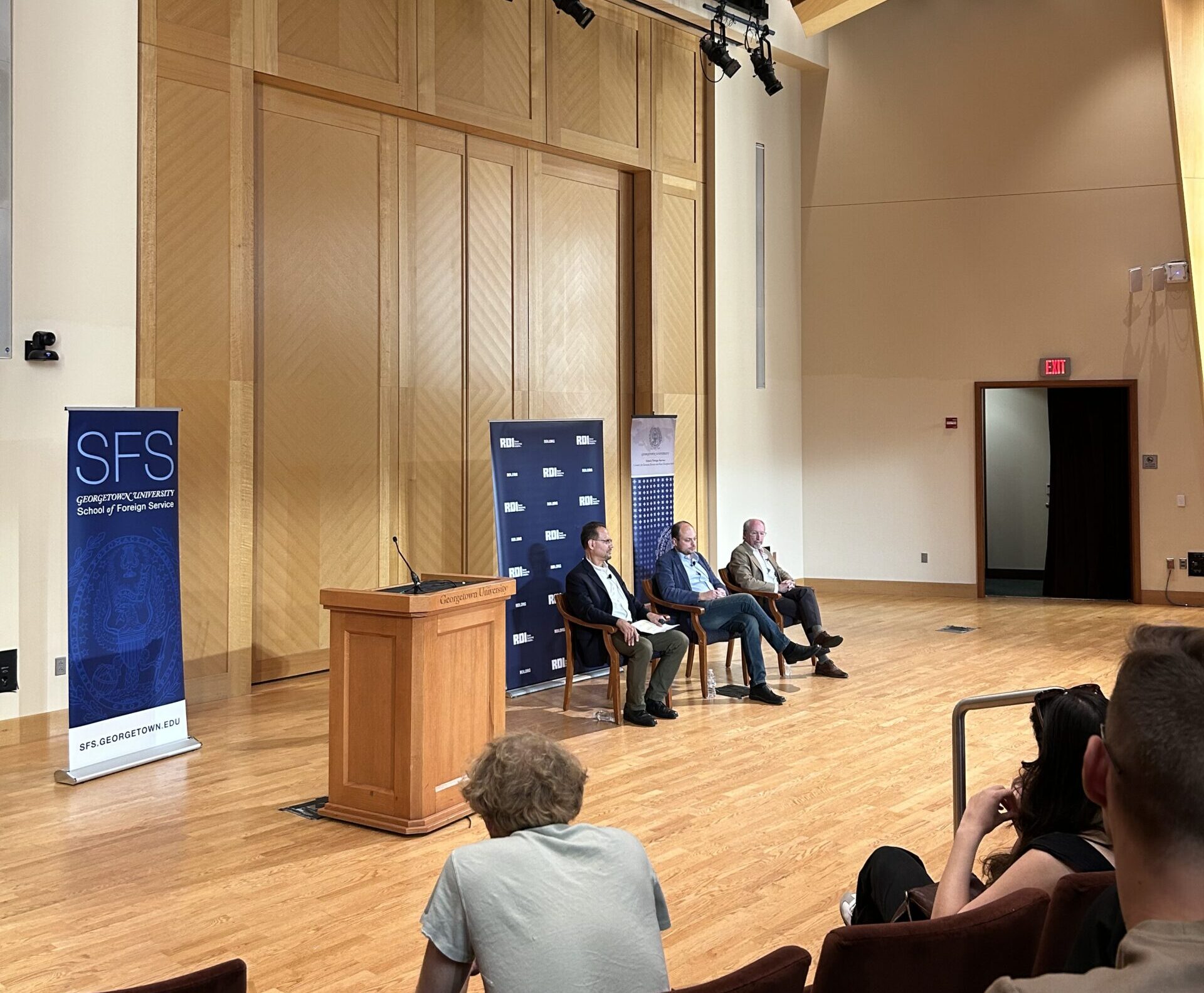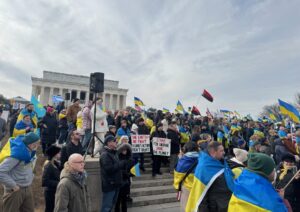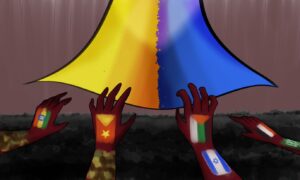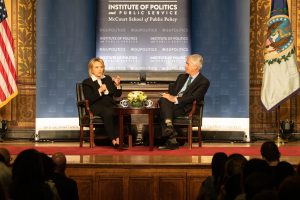On Sept. 22, Georgetown’s SFS hosted the panel event “The Dissident in History and Politics: The Soviet Past, Russia’s Present, and the Global Moment” in the Lohrfink Auditorium. The event marked the beginning of Vladimir Kara-Murza’s speaker series as the Center for Eurasian, Russian, and East European Studies’s (CERES) first dissident-in-residence.
Kara-Murza is a Russian politician, author, historian, and documentary filmmaker. After publicly criticizing the Russian occupation of Ukraine in April 2022, he was arrested and sentenced to 25 years in a maximum-security prison. He was released in a prisoner exchange with the U.S. in 2024 and joined the Georgetown faculty this August.
During his time at Georgetown, Kara-Murza will both host larger speaker events and smaller roundtable discussions. He also is expected to sponsor a dissident discussion group based in CERES and open to SFS graduate students.
The event was hosted in partnership with the D.C. advocacy organization Renew Democracy Initiative (RDI). RDI is home to the Frontlines of Freedom: On Campus program, which is building a network of global dissidents to share their firsthand encounters with authoritarianism with students. Kara-Murza is a RDI fellow who joined Georgetown through the program.
Aradhya Gupta (SFS ’29) thinks that Kara-Murza’s on-campus presence will help students better connect to topics they have learned about in the classroom.
“One reason I chose Georgetown over other universities was how Georgetown’s professors were made up of practitioners, and not simply intellectuals or academics in their fields,” Gupta said. “I think the experience he holds—being in prison, being in Russia, being arrested, having been exiled—are really important.”
The panel engaged Pulitzer Prize award-winning author Benjamin Nathans in conversation regarding the history of the Soviet Dissident Movement, a small but committed citizen resistance to the Soviet regime during the Cold War.
Following the death of General Secretary of the Communist Party Joseph Stalin, the Soviet Dissident Movement reached its peak in the ’60s and ’70s. Students, intellectuals, and artists openly criticized the communist regime and called for the restoration of free speech and human rights across the nation.
The panelists answered the question, “In what ways can we speak about lessons of the past in order to comprehend the phenomenon of resistance, opposition, and dissent?”
“I think what united [the Soviet dissidents], and this is something acutely relevant for us in the current generation Russian opposition, is this determination not to become accomplices in the regime’s crimes,” Kara-Murza said.
Nathans continued by touching on the KGB’s—the Soviet Union’s foreign intelligence and domestic security agency—practice of questioning the regime’s critics about their community in their mission to uncover other members of the opposition. This presented these critics with what Nathans referred to as a “moral stumbling block,” with those who refused to collaborate becoming known as “dissidents.”
After further discussion about the history of the movement, moderator and director of CERES Michael David-Fox turned the conversation towards the present day. He first referenced the global moment and current political climate in the United States. Then he asked if either of the panelists had any advice for people in a time of “rising authoritarianism, of democratic backsliding, and a breakdown of norms of institution.”
Nathans began with the irony of the current political climate. When constructing his book To the Success of Our Hopeless Cause: The Many Lives of the Soviet Dissident Movement, he was not anticipating the content to be quite so relevant in his home country.
“I never expected it when I was working on this book,” Nathans said. “The challenge is the lessons, the arguments about tactics, strategies, have all taken on an unanticipated residence in the United States because of what has happened to our democracy.”
Nathans acknowledged the validity of potential historical parallels. However, he also highlighted the major differences between the United States and Russia, such as the free press and the independent court system.
“The sheer example of clarity and purpose that the Soviet dissidents demonstrated under exponentially more difficult and more hopeless conditions is for me quite inspiring,” Nathans said.
While Kara-Murza agreed that there remain strong differences between the Russian and American governments, he also warned of the danger in complacency and the speed at which rights may be dissolved.
When the conversation was opened up for questions, both speakers had the opportunity to address the ongoing Russian invasion of Ukraine.
Kara-Murza emphasized the importance of establishing a Russian democracy.
“Most Ukrainian politicians, and I would say most Ukrainian citizens, understand that the best possible guarantee for peace and security and territorial integrity of Ukraine, is a democratic Russia,” Kara-Murza said. “Only when Russia starts respecting the rights and freedoms of its own people, only then will it start respecting the borders of its neighbors.”
Roye Ganju (SFS ’29) said that he left the panel inspired.
“He’s survived multiple attempts on his life and being in a labor camp,” Ganju said. “Just the experience of seeing somebody who’s been through so much on stage talking about still hoping for freedom and still believing in his cause, I think there’s something quite powerful to that.”
Gupta echoed this statement and put additional emphasis on the bravery of dissidents, both for the sake of their future and their country’s.
“I think that really resonated with me,” Gupta said. “The fact that he went back to Russia and talked about other Soviet dissidents that went back to Russia to kind of show their fellow citizens that they should not be fearful in the face of tyranny.”






